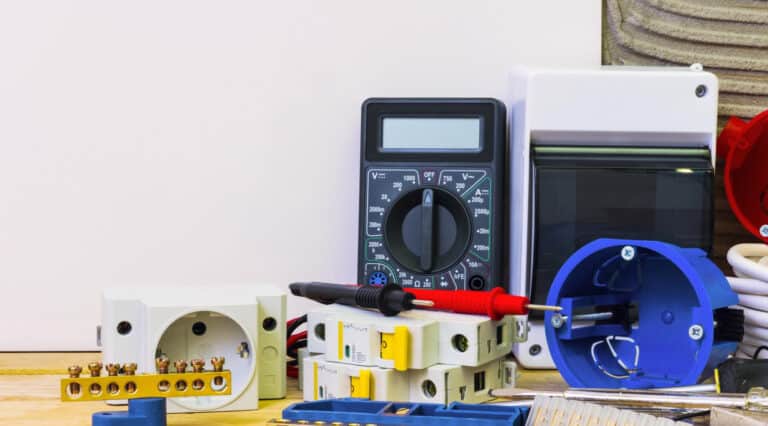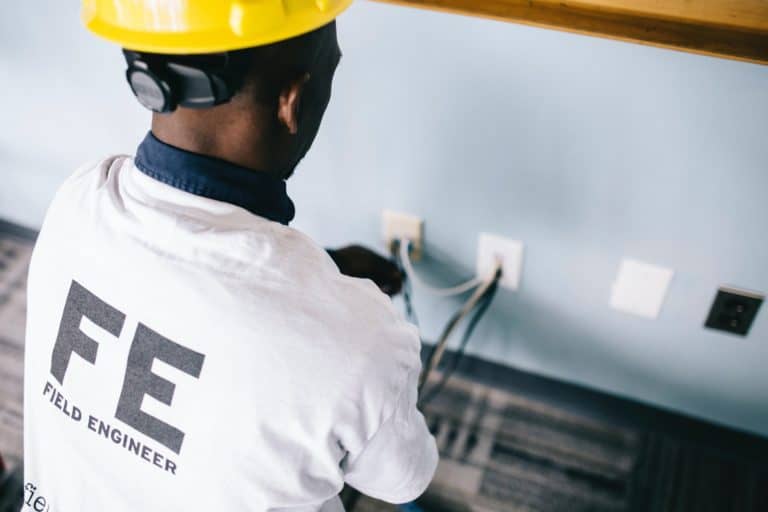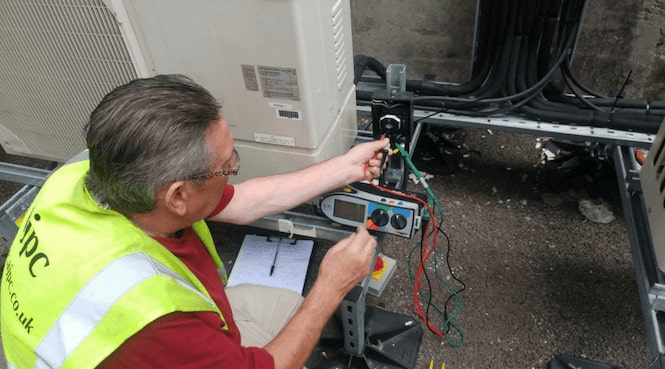Find My Local Expert Selling Your Home? Need an Electrical...
Read More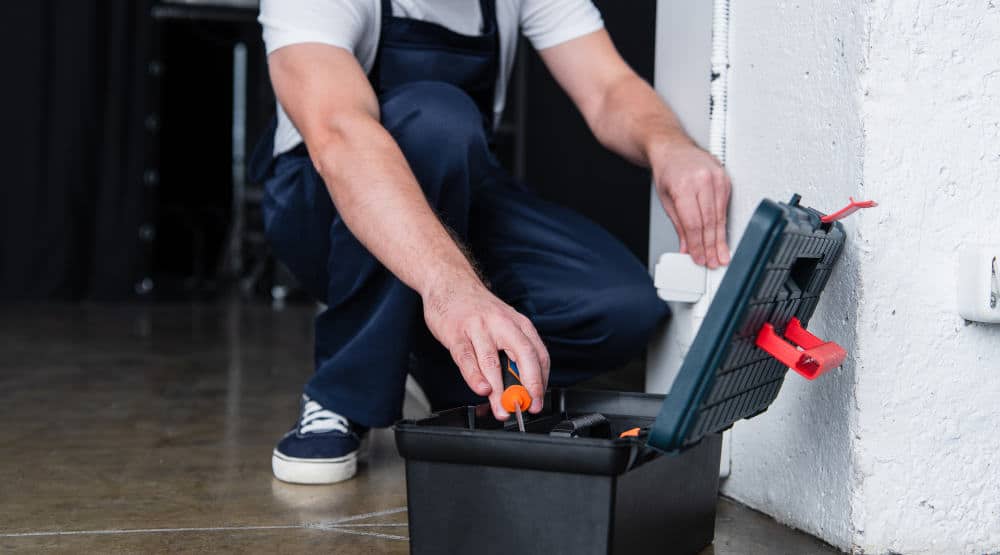
Shocking Electrical Faults at Home You Need to Know
Are you experiencing frequent problems with your home’s electrical system? You’re not alone! Many homeowners encounter common electrical issues that can cause inconvenience and even potential hazards. Let’s take a look at some of the most common problems you may come across.
One common issue is a constantly tripping fuse board. If your circuit breaker frequently trips or your fuses blow out, it could indicate an overloaded circuit or a fault in the wiring. This can cause inconvenience, especially if it disrupts the power supply to essential appliances or areas of your home.
If you hear a buzzing noise from plug sockets, get it fixed right away. It could mean loose wiring or a faulty connection. Malfunctioning electrical sockets and switches are also frequent issues in homes. If you notice that your outlets or switches are not working properly, it’s important to have them fixed by a qualified electrician.
Flashing lights can be quite disconcerting and should not be ignored. It could be a sign of a loose connection, faulty bulb, or poor wiring. Lastly, a complete power loss can occur due to various reasons such as an electrical fault, defective wiring, or a tripped circuit breaker.
If you encounter any of these electrical issues in your home, it’s essential to address them promptly to prevent further damage or potential hazards. Consulting with a professional electrician is recommended to ensure that the problems are diagnosed correctly and repaired safely. Remember, electrical issues should never be taken lightly, as they can lead to more severe damage or even electrical fires. Stay safe and make sure your electrical system is in top-notch condition!
Typical electrical issues frequently encountered in residential properties.
1. Circuit breakers keep tripping
2. Faulty Outlets and Switches
3. Electrical sockets and switches are not functioning properly.
4. Flashing Lights
5. Complete Power Loss
Electrical issues in the home can range from minor inconveniences to serious safety hazards. Understanding some of the most common problems can help homeowners identify and address these issues before they escalate. Here are five of the most frequent electrical issues homeowners may encounter.
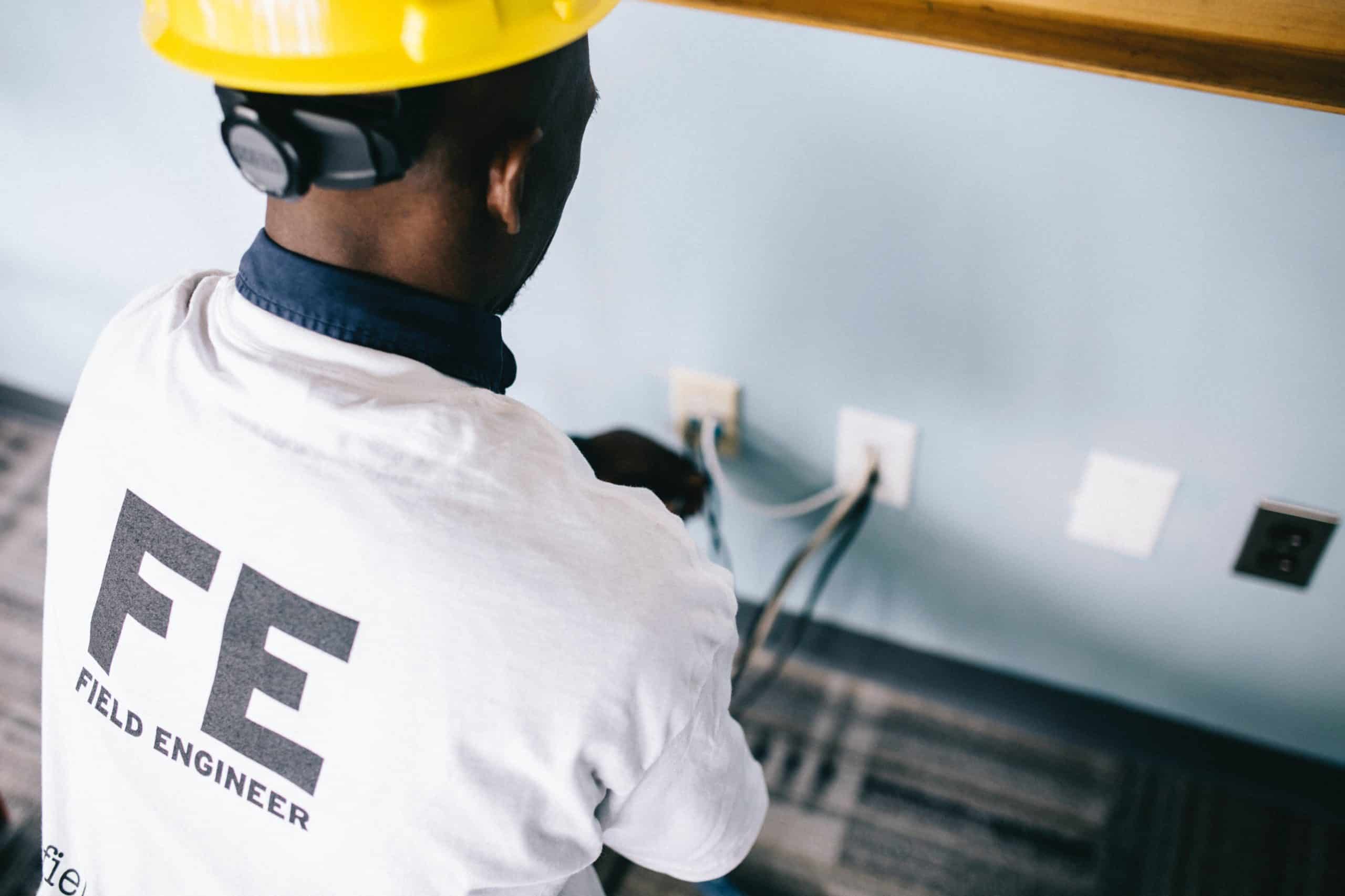
Circuit breakers keep tripping
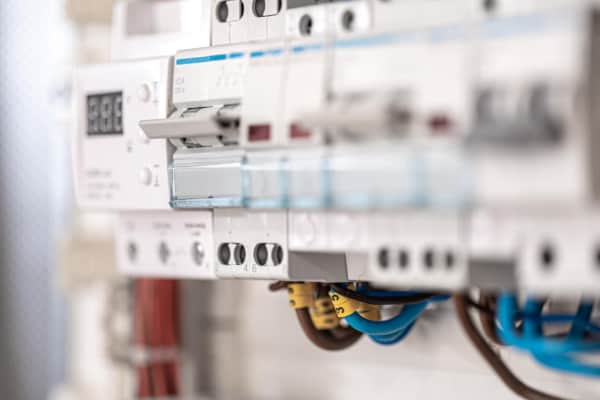
Many homeowners frequently experience the issue of tripping the fuse. It is a common electrical problem that occurs when there is an overload or short circuit in the system, which is a safety precaution.
There are a few possible causes for a constantly tripping fuse board. One reason is if you have too many high-power appliances plugged into the same circuit, it can cause the circuit breaker to trip.
Another possible cause is a short circuit, which occurs when there is an unintended connection between two wires that should not be connected. This can happen due to faulty appliances or damaged wiring.
Water damage can also be a culprit. If water comes into contact with electrical wiring, it can cause a short circuit and trip the circuit breaker. This is why it’s important to keep electrical outlets and appliances away from water sources, such as sinks and showers.
To address a constantly tripping fuse board, start by unplugging any unnecessary appliances from the affected circuit. If the problem persists, it’s best to call a qualified electrician to inspect and repair the faulty wiring. They will be able to identify the root cause of the issue and ensure that your electrical system is safe and functioning properly.
Faulty Outlets and Switches
One common electrical fault that homeowners may encounter is a buzzing noise coming from plug sockets. This can be a concerning issue, but fortunately, there are steps you can take to address and fix the problem.
Firstly, it’s important to identify the potential causes of the buzzing noise. One possible culprit could be defective wiring within the electrical system. Over time, wiring components can become worn or damaged, leading to loose connections or frayed wires.
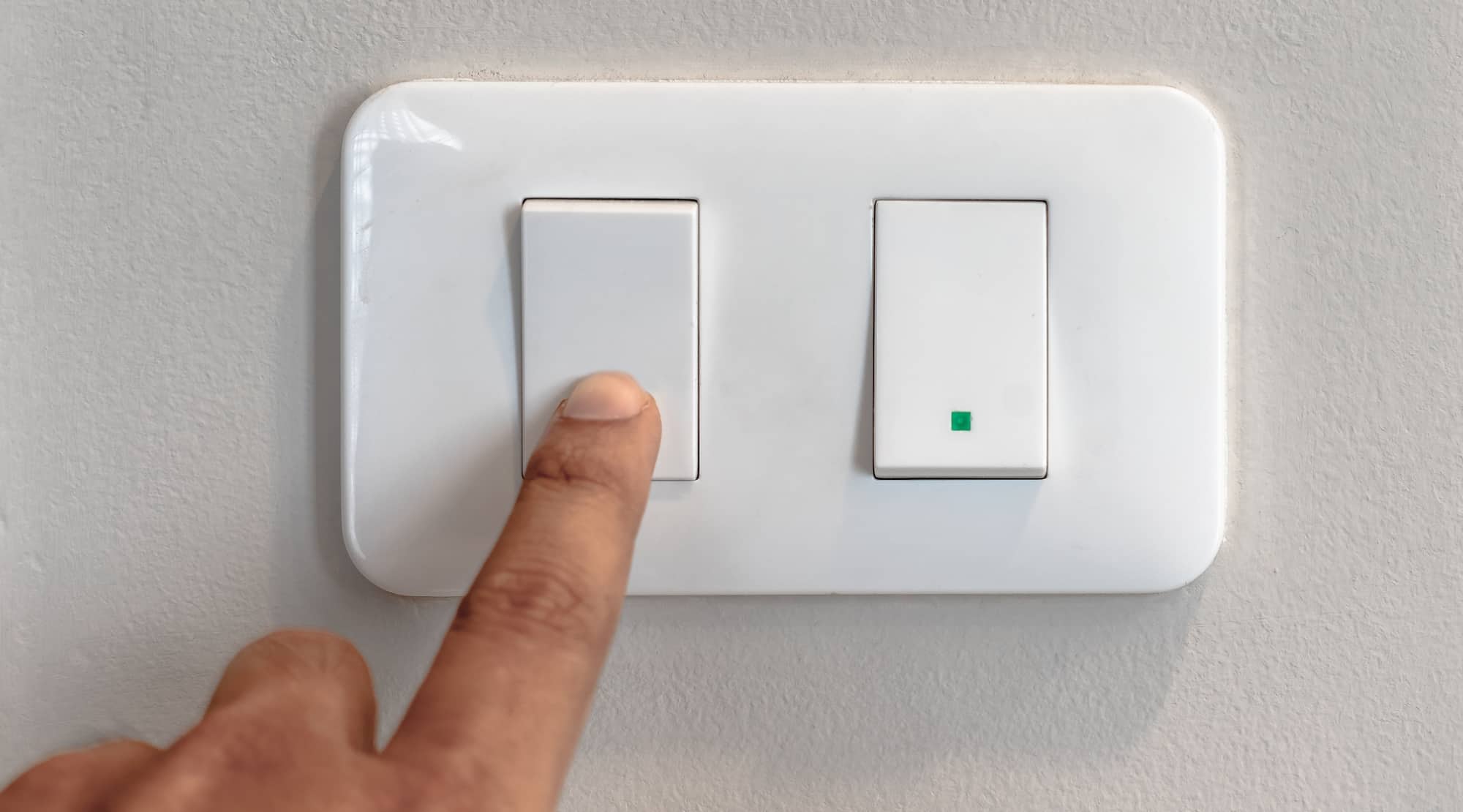
Another potential cause could be a loosely connected switch. If the switch is not securely fastened, it can cause vibrations and a buzzing sound.
To fix the issue, it is recommended to follow some necessary steps. Start by checking the connections on the plug socket and switch. Ensure that they are tightly secured and not loose. If any loose connections are found, it is important to tighten them using the appropriate tools.
If the buzzing noise persists, it may be necessary to replace any faulty wiring components. In this case, it is highly recommended to seek the assistance of a qualified electrician. They will be able to accurately diagnose the problem and handle the replacement of any defective wiring or components.
Electrical Sockets and Switches Not Working
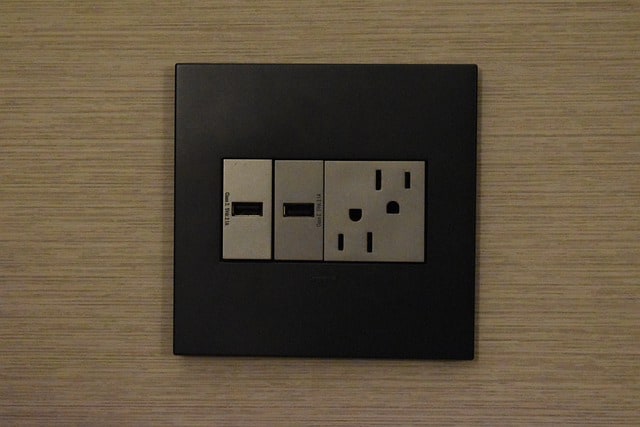
Have you ever experienced electrical sockets or switches not working in your home? It can be frustrating and inconvenient, but it’s important to address these issues promptly for your safety and to prevent potential hazards.
Loose wiring is a common issue that can occur in electrical sockets and switches due to regular use or improper installation. It can cause power problems or even failure of the socket or switch.
Another common issue is faulty fittings. The internal components of sockets and switches can wear out or become damaged over time. This can result in poor electrical contact and lead to issues such as flickering lights or devices not turning on.
Additionally, dry or brittle rubber seals can cause problems. The rubber seals around sockets and switches help to protect against electrical shocks and prevent dust or moisture from entering. If these rubber seals become dry or brittle, they can compromise the safety and functionality of the electrical components.
It’s crucial to address these issues promptly to avoid potential electrical fires and hazards. Loose wiring or faulty fittings can generate heat, leading to electrical sparks or even fire. Damaged seals can expose live electrical parts, increasing the risk of electrical shocks.
To ensure the safety of your home and loved ones, it’s advisable to consult a qualified electrician to assess and fix any electrical socket or switch issues. They have the expertise to identify and resolve loose wiring, faulty fittings, or damaged seals, ensuring your electrical system operates safely and efficiently.
Flashing Lights
Do you ever notice your lights flashing unpredictably? It can be quite frustrating and even concerning. There are several common causes for this issue.

One potential cause is high voltage surges. When there is a sudden increase in electrical current, it can cause the lights to flicker or flash. High voltage surges can be caused by lightning strikes, electrical faults, or issues with the power supply.
Another cause could be loose connections. Over time, the connections between light fixtures and electrical wiring can become loose due to regular use or improper installation. Loose connections can result in intermittent power issues, leading to flashing lights.
Faulty wiring is another possible culprit. If the electrical wiring in your home is outdated or defective, it can cause disruptions in the flow of electricity. This can lead to flashing lights or even more serious electrical issues.
Outdated electrical equipment can also contribute to flashing lights. Older fixtures or light bulbs may not be compatible with the electrical system in your home, causing them to flicker or flash.
To address flashing lights, consider replacing your power supply with a smart power supply that can regulate voltage and handle surges. Installing dimmer switches or motion sensors can also help stabilize the electrical flow. Lastly, ensure proper installation and wiring to prevent loose connections or faulty wiring.
If you’re unsure about the cause of the flashing lights or if the problem persists, it’s always best to consult a qualified electrician. They can assess your electrical system, identify the root cause, and provide the necessary solutions to ensure the safety and functionality of your lighting.
Complete Power Loss

Experiencing a complete power loss in your home can be a frustrating and inconvenient situation. When the lights go out and everything shuts off, it’s important to understand the potential causes and steps to address the issue.
One common reason for a complete power loss is an electrical fault. This could be caused by a variety of factors, such as faulty wiring, a tripped circuit breaker, or a problem with the electrical panel. In this case, it is crucial to contact a qualified electrician to inspect and repair any electrical faults. They have the knowledge and expertise to diagnose the problem and safely fix any issues.
However, if the power outage is not limited to your property and affects the entire area, it’s likely a larger issue with the power supply. In such situations, it’s best to contact your power company and report the outage. They will dispatch technicians to address the problem and restore power to the area.
In either case, it’s important to prioritize safety during a power outage. Ensure that all electrical appliances are turned off to prevent any potential damage once the power is restored. Also, keep torches or flashlights handy, and avoid using candles as they pose fire hazards.
Spot Electrical Faults Before It Becomes An Issue
Electrical faults can be major inconveniences and potential hazards if left undetected or unaddressed. It’s important to proactively identify and resolve any issues before they escalate into more significant problems. By recognizing the signs of common electrical faults and taking prompt action, you can ensure the safety and functionality of your electrical systems. In this article, we will discuss some of the most common electrical faults and provide tips on how to spot them before they become major issues. By staying vigilant and addressing electrical faults early on, you can prevent potential risks and save yourself from costly repairs or even property damage.
Hire an Expert! Get an Electrical Inspection.
When it comes to electrical issues, it’s important to prioritize safety above all else. That’s why hiring an expert for an electrical inspection is paramount. Dealing with electrical faults can be dangerous and should only be handled by qualified individuals.
A certified electrician is trained to identify and fix any potential electrical hazards, ensuring the safety of both you and your property. They have the expertise to navigate complex electrical systems, identify faults, and provide solutions to prevent any further damage.
Not only does hiring an expert keep you safe, but it also ensures compliance with legal regulations. In the UK, electrical work must meet certain standards outlined in the Building Regulations and, in some cases, requires certification from a competent person scheme. Hiring a qualified electrician guarantees that your electrical work will meet these legal requirements.
Attempting to tackle electrical issues on your own or hiring an unqualified individual can lead to severe consequences, including electrical shocks, fires, and property damage. It’s always better to err on the side of caution and entrust your electrical needs to a professional.
So, when it comes to electrical inspections and repairs, don’t take any chances. Hire an expert, a qualified electrician, to ensure safety, peace of mind, and compliance with legal regulations.
You May Also Like...
How To Safely Identify Electrical Faults in Your Home
Find My Local Expert How To Safely Identify Electrical Faults...
Read MoreHow to Prevent Your Circuit Breaker From Tripping
Find My Local Expert How to Prevent Your Circuit Breaker...
Read MoreElectrical Installation Condition Report
Find My Local Expert Everything You Need to Know About...
Read More9 Appliances That Can Trip Circuit Breakers
Find My Local Expert 9 Appliances That Can Trip Circuit...
Read MoreMake Sure Your Electrics Are Safe!
My Trusted Expert Guarantee
Experts Have Been Vetted & Approved
